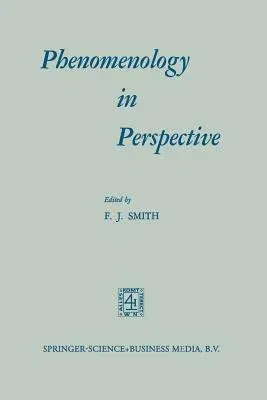Phenomenology, as one of many ways of philosophizing, can be seen from
many perspectives. And, as a body of thought, it can be placed in
perspective. The essays in this book clearly show that there is no one
way of "doing phenomenology," any more than there is any one way to
philosophize. Phenomenology reveals itself as many-faceted, and there is
work in this field for many talents. The fact that there are such varied
aspects to the study of phenomenology is what puts it in perspective as
a rich source of philosophical thought. In the sharing of their various
perspectives the authors of these essays discuss the present and future
of phenomenology as a philosophical discipline, the important subjects
of language, of interpersonal relations, of self- awakening, of visual
and auditory perception and imagination, of ethical education. The names
of Husserl, Heidegger, and Merleau- Ponty 100m large in these essays,
but Max Scheler's name is also placed in perspective as one of the major
phenomenological thinkers, thus far not as weH known in America as he
might be. No one claims that the thought of Martin Heidegger is easy to
comprehend, especiaHy if immediate "results" are demanded. The difficult
essays on Heidegger reflect some of the innate complexities of his
thought.


